Several vitamins and minerals are important for maintaining healthy blood flow, but it’s important to remember that they are not a magic bullet. A healthy diet and lifestyle are essential for optimal circulation.
Here are some of the vitamins and minerals that may help support healthy blood flow:
- Vitamin B complex
- Vitamin C
- Vitamin E
- Vitamin K
- Iron
- Magnesium
Vitamin B complex
B vitamins, including B12 and folic acid, help manage homocysteine levels, an amino acid that can damage blood vessels if levels are too high. Good sources of B vitamins include leafy green vegetables, legumes, and nuts. Vitamin B complex comprises eight essential vitamins crucial to maintaining healthy blood flow. Here’s how they contribute:
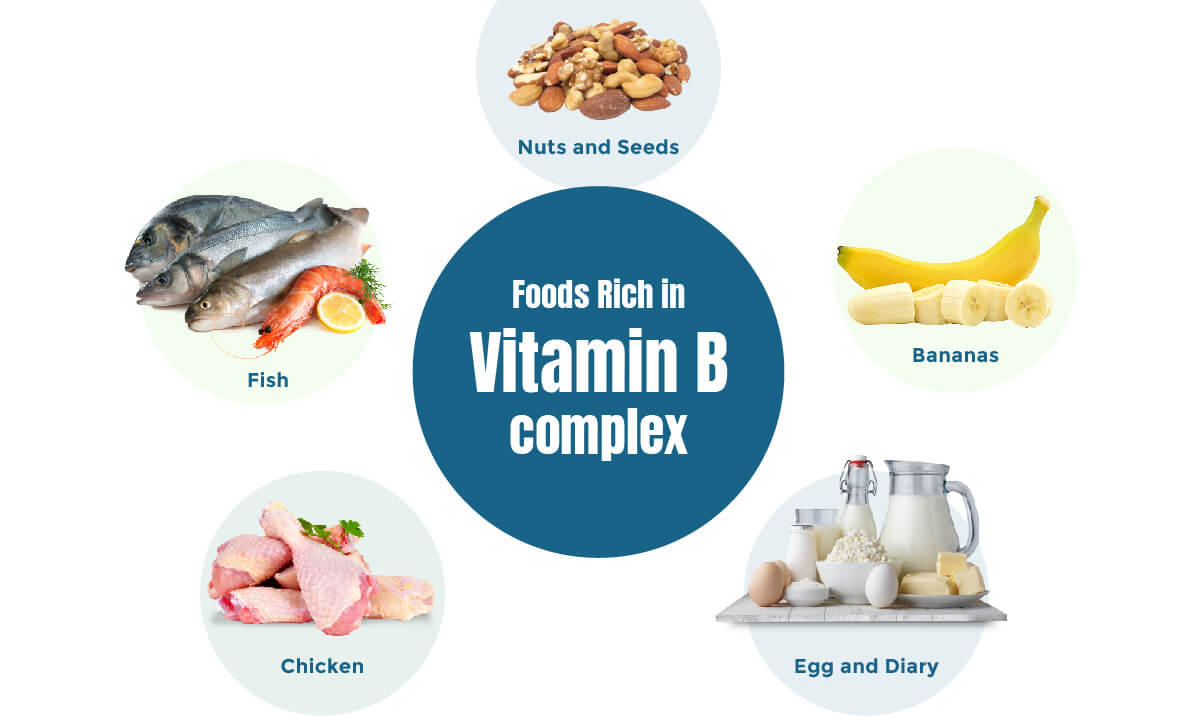
- Folate (B9): Contributes to producing red blood cells carrying oxygen throughout the body. Deficiency can lead to anemia, characterized by fatigue and poor circulation.
- Vitamin B12 is also involved in red blood cell production and supports nerve function, which can impact circulation by regulating blood vessel tone.
- Vitamin B6: Aids in the metabolism of homocysteine, an amino acid that can damage blood vessel walls if elevated. High homocysteine levels are a risk factor for heart disease and stroke.
- Niacin (B3): This may help improve blood flow by dilating blood vessels, although research on its direct impact on circulation is ongoing. It also contributes to healthy cholesterol levels.
- Riboflavin (B2): Supports energy production within cells, which is vital for maintaining proper blood flow and tissue oxygenation.
- Thiamine (B1): Plays a role in nerve function and energy metabolism, both essential for healthy blood circulation.
- Pantothenic Acid (B5): Contributes to the production of red blood cells and helps convert food into energy, supporting overall cardiovascular health.
- Biotin: Involved in energy metabolism and helps regulate blood sugar levels, which can indirectly impact blood flow.
While vitamin B complex can support healthy blood flow, it’s crucial to remember:
- It’s Not a Magic Bullet: A balanced diet of fruits, vegetables, whole grains, and lean protein is essential for optimal circulation.
- Talk to Your Doctor: If you have concerns about your blood flow or are considering taking supplements, consult your doctor to determine if it’s right for you and what dosage is appropriate.
- Beware of Overdosing: Excessive intake of certain B vitamins, particularly B6 and niacin, can cause side effects.
By incorporating a healthy diet, regular exercise, and managing risk factors like smoking and obesity, you can proactively support healthy blood flow and maintain cardiovascular health.
Vitamin C
Vitamin C can indeed contribute to healthy blood flow in several ways. Still, it’s crucial to understand its limitations and consider it part of a holistic approach to heart health. Here’s a breakdown of its potential benefits:
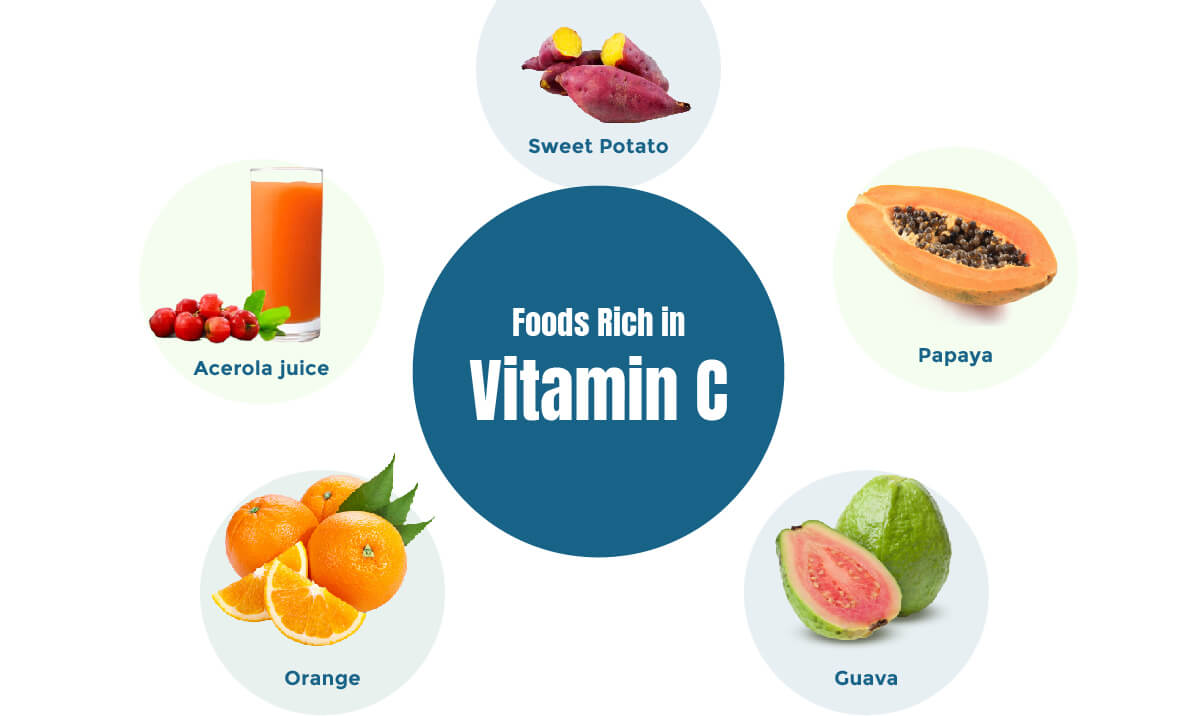
- Antioxidant Powerhouse: Vitamin C, a potent antioxidant, fights free radicals roaming your body. These free radicals can damage blood vessel walls, leading to inflammation and hardening of arteries. By neutralizing them, Vitamin C helps protect the integrity of blood vessels and maintains their elasticity.
- Building Block for Strong Vessels: Vitamin C is essential for producing collagen, a protein forming the structural foundation of blood vessels, skin, and bones. Strong and elastic collagen is crucial for maintaining healthy blood flow and preventing vessel damage.
- Supporting Nitric Oxide Production: Vitamin C might indirectly support the production of nitric oxide, which helps relax blood vessels and improve blood flow. However, research on this specific mechanism is ongoing and requires further investigation.
- Potential Blood Pressure Reduction: Some studies suggest Vitamin C may contribute to slightly lower blood pressure, improving blood flow throughout the body. However, the effect is often modest, and more research is needed to confirm this link definitively.
Remember
- While Vitamin C offers these benefits, it’s not a standalone solution for ensuring healthy blood flow. A balanced diet, regular exercise, and managing other risk factors like smoking and high cholesterol are far more crucial.
- Excessive Vitamin C intake (beyond the recommended daily amount) is unlikely to provide additional benefits and may cause side effects like digestive issues.
- Individuals with specific health conditions may need to be cautious with Vitamin C supplementation and consult their doctor before taking it.
Vitamin E
Vitamin E is another antioxidant that may help protect blood vessels from damage. It also helps thin the blood, which can improve circulation. Good sources of vitamin E include nuts, seeds, and vegetable oils.
Vitamin E may offer some potential benefits for blood flow, but it’s essential to understand its limitations and consider it part of a holistic approach to cardiovascular health. Here’s a breakdown:
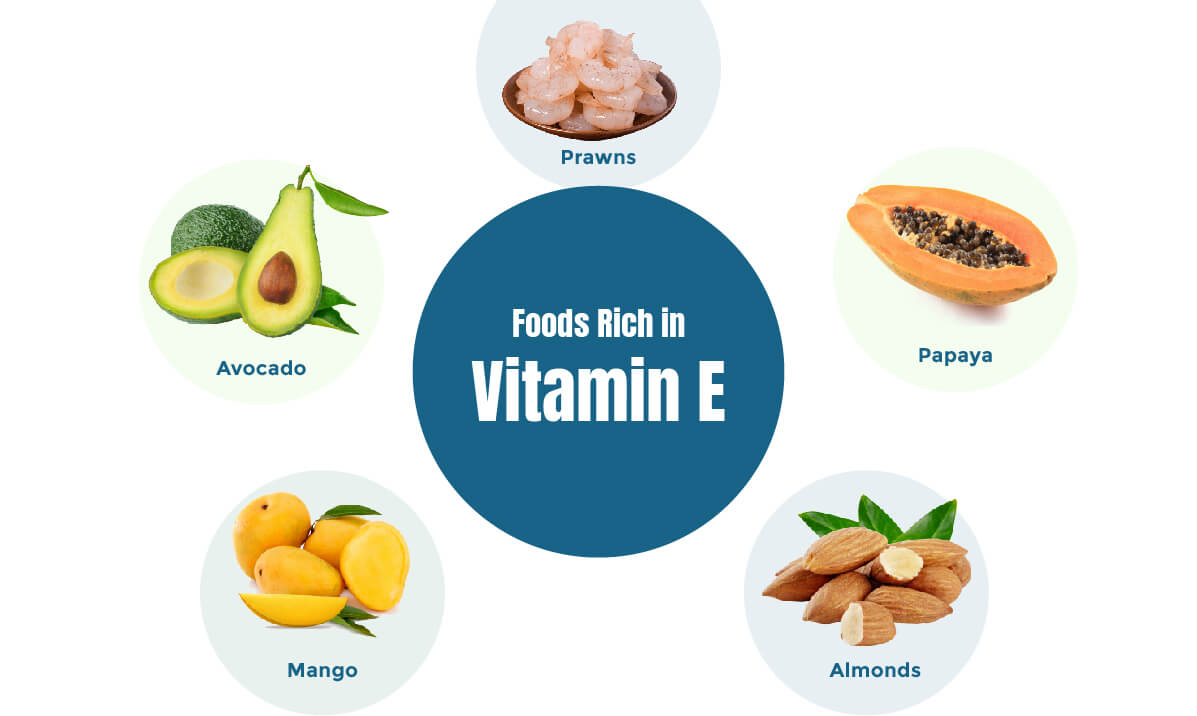
Potential Benefits
- Antioxidant Properties: Like Vitamin C, Vitamin E acts as an antioxidant, combating free radicals that can damage blood vessel walls and contribute to Atherosclerosis. This protective effect may help maintain vessel integrity and promote vasodilation (widening).
- Platelet Aggregation Inhibition: Vitamin E might play a role in preventing excessive blood clotting by slightly inhibiting platelet aggregation, the clumping together of platelets that can lead to thrombus formation. However, studies on this effect have mixed results.
- Improved Blood Vessel Function: Some research suggests Vitamin E supplementation may improve blood vessel function in specific groups, like diabetics or athletes. However, the evidence is inconsistent and requires further investigation.
Limitations to Consider
- Limited Evidence: While potential benefits exist, large-scale studies have yet to consistently show conclusive evidence that Vitamin E supplementation significantly improves blood flow in healthy individuals.
- Dosage and Individual Differences: The effectiveness of Vitamin E for blood flow may depend on individual factors, including baseline health, diet, and the specific type of Vitamin E supplement used.
- Potential Side Effects: High doses of Vitamin E supplementation can increase the risk of bleeding and may interact with certain medications. Consult your doctor before taking any supplements, including Vitamin E.
Remember
- Maintaining healthy blood flow relies heavily on a holistic approach, including a balanced diet of fruits, vegetables, whole grains, lean protein, regular exercise, and managing risk factors like high cholesterol, smoking, and obesity.
- It is important to note that taking vitamin E supplements should not be considered a substitute for necessary healthy habits and practices.
Vitamin K
Vitamin K is important for blood clotting but may also affect blood vessel health. Good sources of vitamin K include leafy green vegetables and fermented foods like sauerkraut.
Vitamin K’s primary role is blood clotting; it does offer some potential benefits for healthy blood flow, although the evidence remains somewhat limited:
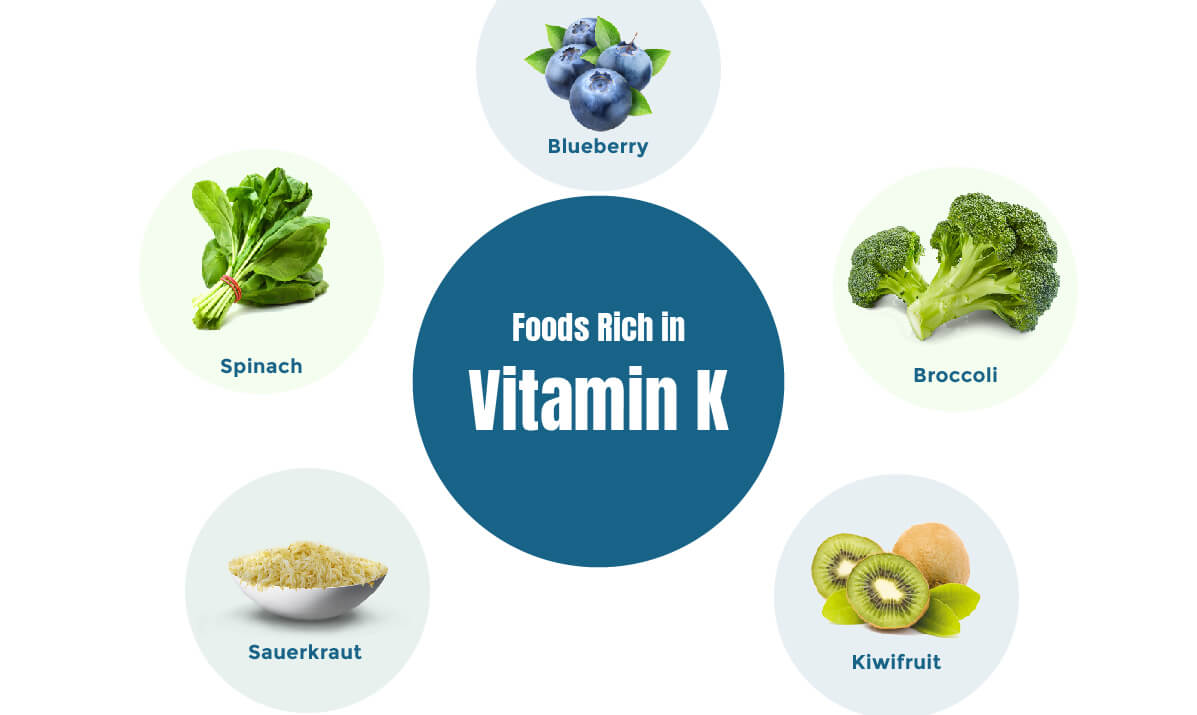
- Protecting Blood Vessels: Vitamin K activates matrix Gla proteins (MGPs), which prevent calcium buildup in arteries. This “hardening” (atherosclerosis) restricts blood flow and increases heart disease risk. Vitamin K’s role in keeping arteries flexible and calcium-free might improve blood flow.
- Blood Pressure Regulation: Some studies suggest a link between Vitamin K intake and slightly lower blood pressure, which can enhance blood flow. However, more research is needed to confirm this connection definitively.
Important Considerations
- Limited Evidence: While these potential benefits exist, the research on Vitamin K’s specific impact on blood flow is ongoing and requires further investigation.
- Individual Differences: The effectiveness of Vitamin K for blood flow may vary depending on your diet, health conditions, and the type of Vitamin K (K1 or K2) consumed.
- Medication Interactions: People taking blood thinners like Warfarin need to be cautious with Vitamin K as it can interfere with the medication. Consult your doctor before increasing your vitamin K intake.
Remember
- A healthy lifestyle, including a balanced diet, regular exercise, and addressing risk factors like smoking and high cholesterol, remains crucial for optimal blood flow.
- Vitamin K should be considered something other than a standalone solution for improving blood flow.
Iron
Iron is essential for carrying oxygen in the blood. If you’re iron deficient, you may experience fatigue and other symptoms, including poor circulation. Good sources of iron include red meat, poultry, and beans.
Iron plays a critical role in healthy blood flow by being a key component of
hemoglobin, the protein in red blood cells responsible for carrying oxygen throughout your body. Here’s a breakdown of how it helps:
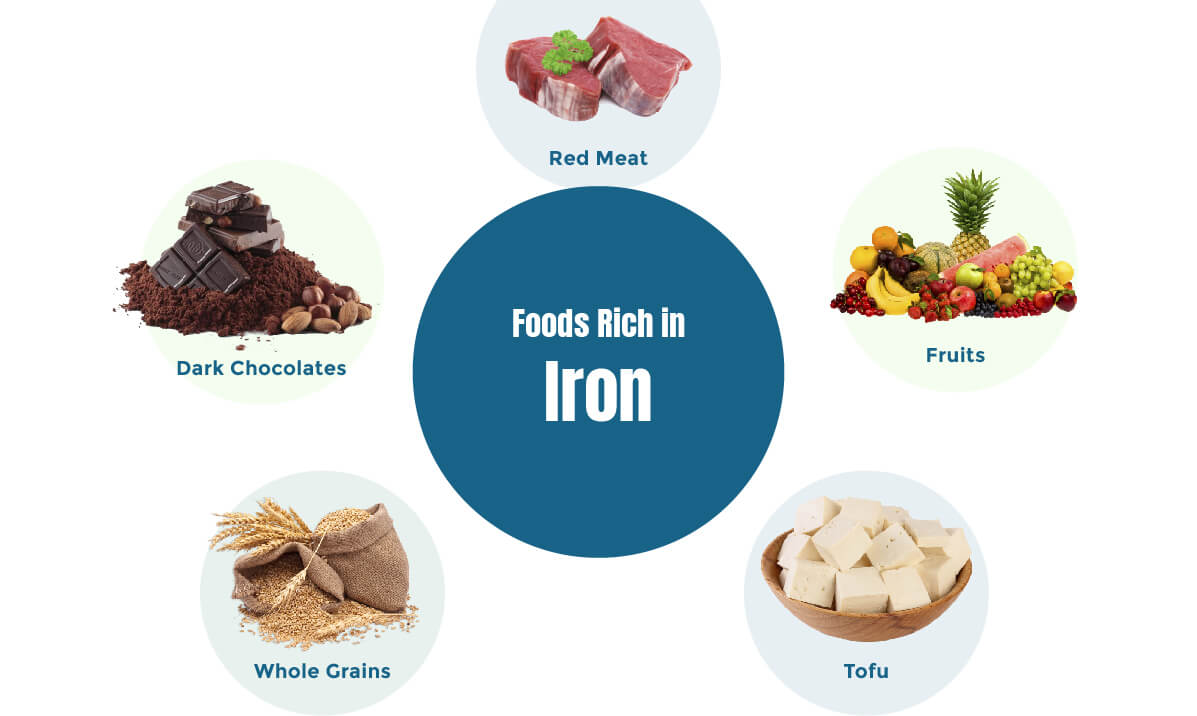
- Oxygen Delivery: Iron binds to oxygen in the lungs, allowing red blood cells to transport it to every tissue and organ. Sufficient iron ensures your body receives the oxygen it needs for optimal function, preventing fatigue and promoting healthy circulation.
- Improved Energy Levels: With enough iron, your body can efficiently deliver oxygen to your muscles, allowing for better exertion and endurance during physical activity.
- Enhanced Cognitive Function: Proper oxygen delivery to the brain is crucial for clear thinking, memory, and concentration. Iron deficiency can lead to fatigue, brain fog, and decreased cognitive performance.
- Stronger Immune System: Iron is essential for immune cell function and development. Adequate iron levels help your body fight infections and diseases, supporting overall well-being.
Remember
- Excessive iron intake can be harmful. Please consult your doctor before taking iron supplements, as they can interact with medications and have side effects.
- Iron deficiency is more common than iron overload. If you experience fatigue, shortness of breath, or pale skin, talk to your doctor for a blood test to check your iron levels.
Magnesium
Magnesium helps relax blood vessels, which can improve circulation. It also helps regulate blood pressure. Good sources of magnesium include leafy green vegetables, nuts, and seeds.
Magnesium plays a vital role in supporting healthy blood flow through several mechanisms:
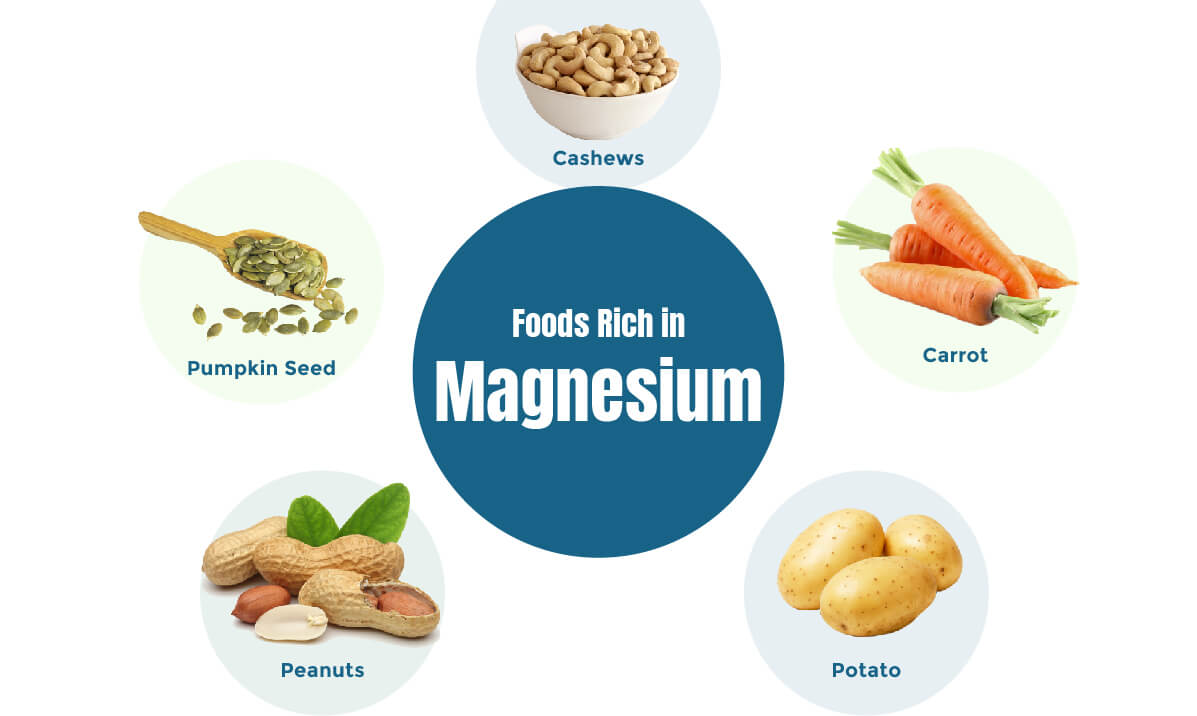
- Blood Vessel Relaxation: Magnesium acts as a natural calcium channel blocker, helping to relax blood vessel walls and improve blood flow. This is particularly beneficial for individuals with high blood pressure or compromised circulation.
- Reduced Inflammation: Magnesium has anti-inflammatory properties, which can help reduce inflammation in blood vessels, another factor contributing to impaired blood flow.
- Improved Blood Vessel Function: Magnesium produces nitric oxide, which helps dilate blood vessels and improve blood flow.
- Enhanced Blood Sugar Control: Good magnesium levels can contribute to better blood sugar control, indirectly supporting healthy blood flow by preventing damage to blood vessels caused by chronic high blood sugar.
- Reduced Blood Clot Formation: Magnesium may play a role in preventing excessive blood clotting, which can obstruct blood flow and increase the risk of heart attack and stroke.
Remember
- While magnesium offers these benefits, it’s crucial to maintain a healthy lifestyle with a balanced diet, regular exercise, and management of risk factors like smoking and obesity for optimal blood flow.
- Please consult your doctor before increasing magnesium intake through supplements, as it can interact with certain medications and have potential side effects.
- Individuals with kidney problems need to be especially cautious with magnesium supplementation.
Additional Lifestyle Tips for Improving Blood Flow
- Eat a Healthy Diet: A diet rich in fruits, vegetables, and whole grains provides essential nutrients for healthy blood vessels.
- Exercise Regularly: Exercise helps improve heart health and circulation. Aim for at least 30 minutes of moderate-intensity exercise most days of the week.
- Maintain a Healthy Weight: Excess weight can strain your heart and blood vessels.
- Quit Smoking: Smoking is a major risk factor for heart disease and stroke. If you smoke, quitting is the best thing you can do for your health.
- Manage Stress: Stress can contribute to high blood pressure and other health problems affecting circulation. Find healthy ways to manage stress, such as yoga, meditation, or spending time in nature.
By making healthy lifestyle choices and talking to your doctor about your concerns, you can help support healthy blood flow and overall cardiovascular health.
